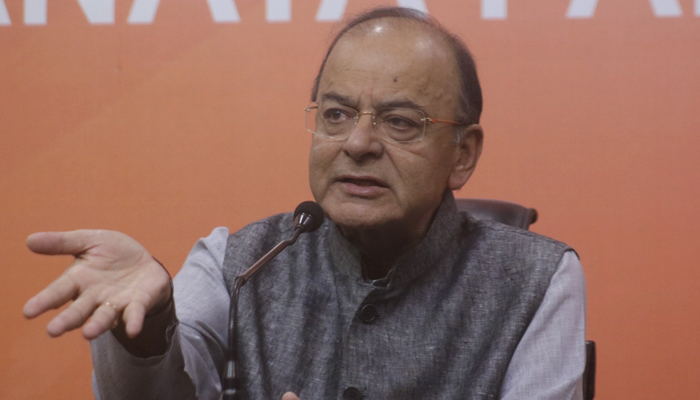TRENDING TAGS :
India needs 'boom period' to achieve 10% growth: Arun Jaitley
New Delhi: Finance Minister Arun Jaitley on Thursday said the country will need a "boom period" like during 2003 to 2008 in order to achieve a 10 per cent growth, which is a "challenging figure".
"A 10 per cent growth is a very challenging figure and a 10 per cent growth will not depend merely on domestic factors. It will also depend on how the world is moving," Jaitley said here at the HT Leadership Summit.
"We managed for three years, a 7-8 per cent growth rate at the time when the world was moving slowly. And I think we effectively used that period, while we were growing between 7 and 8 per cent and the world was slow, in order to bring a series of structural changes in the economy. Certainly, it will help us in the medium and long term to expedite the growth itself.
"I'm realistic that to reach a double-digit growth we need to have a boom period that we had between 2003 and 2008. If the world is only on recovery mode, as the world today is, for an economy to generate that kind of demand on its own is going to be extremely difficult," he asserted.
ALSO READ: Kirron Kher stirs controversy with advice to gang rape victim
Talking about the recently rolled-out Goods and Services Tax (GST) rates, Jaitley said if GST rates were initially fixed at lower levels, it would have had an inflationary impact on the economy.
"I don't think the teething problems (in implementation of GST) had anything to do with the rates because initially if we would have come with the lower rates GST would have had an inflationary impact," said Jaitley.
"Earlier, there used be an effective tax rate of 31 per cent, we temporarily parked them at 28 per cent. On most of the items we have brought it down to 18 per cent and 12 per cent now."
Hinting at merger of 12 per cent and 18 per cent rates, Jaitley said rationalisation of taxes have started ahead of schedule and future rationalisation will depend on revenue collection.
"Future rationalisation will depend on how the collections go on. The collections have to improve. We have to maintain a revenue neutrality," said Jaitley.
"We have already thinned out the 28 per cent bracket, it can thin down more. As far as your collections are going up, the next stage would be - Do you have a scope then for merging the 12 and 18 per cent tax brackets?" he asked.
Jaitley added that a single-rate tax system is only possible in an economy where the purchasing power of people is the same.
ALSO READ: Heavy rain lashes southern and central parts of Kerala
"It is possible only in an economy where there is similarly placed population to have a single rate to start off with. In a highly differentiated society like India, it is not possible. Therefore we started with differential rates."
Talking about employment, the Finance Minister said since most of employment in the country is generated by the small and medium enterprises (SMEs), informal and the unorganised sector, one of the major areas where the government will concentrate is on SME as well as the informal sector.
Talking about the government's plan for the Union Budget 2018-19, which will be its last before the 2019 elections, the Finance Minister said there will two focus areas -- infrastructure and rural India.
IANS



